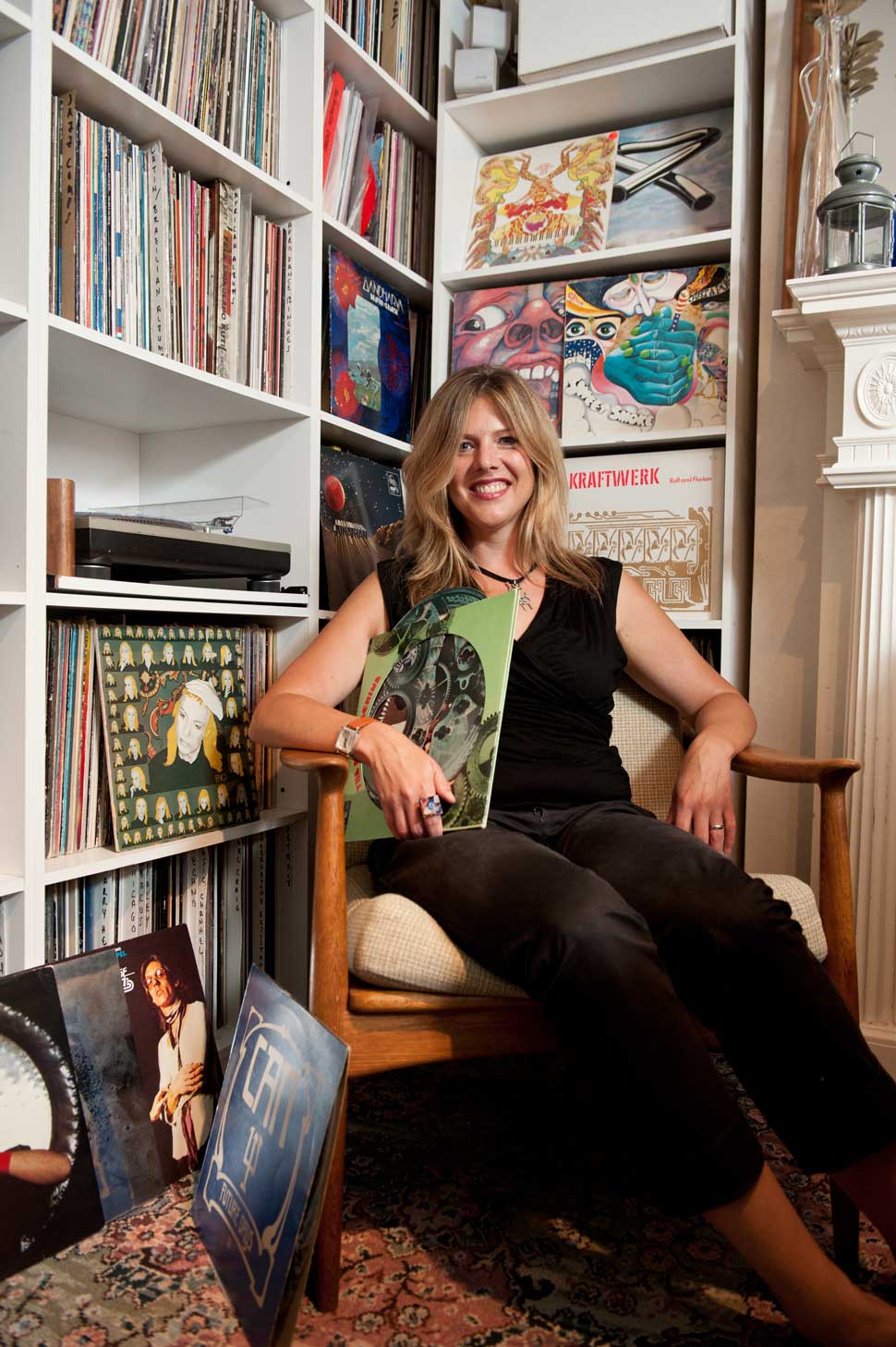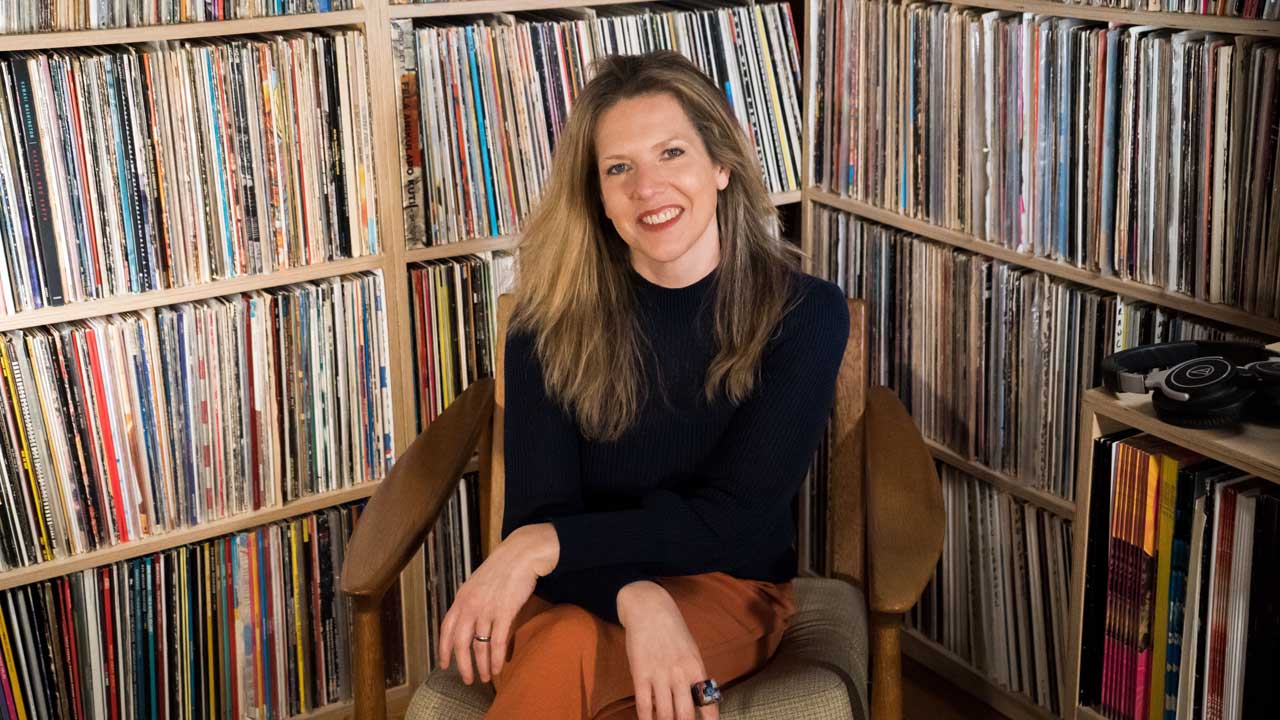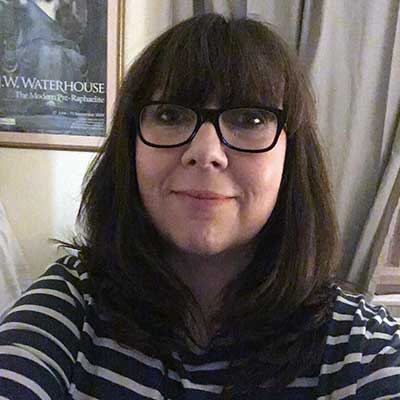It’s September 2013, a Saturday evening, and I’m at Hayes & Harlington station, about to Google Map my way through an office-block-filled maze to a secluded destination where loud music, soft bean bags and Trooper beer await, at a new vinyl LP listening club called Classic Album Sundays.
At an outbuilding by The Old Vinyl Factory, formerly EMI’s enormous HQ and, fittingly, record-pressing plant, excited metal fans are hovering. Then it’s time to file in, grab a drink and flop out as Classic Album Sundays founder Colleen Murphy and Classic Rock/Louder contributor Dom Lawson play a selection of 70s rock and NWOBHM sounds in the run-up to an informal ‘lecture’ presenting Iron Maiden’s Seventh Son Of A Seventh Son, released on the EMI label and pressed in this very factory in 1988.
With the talk finished, the lights dip and Seventh Son begins, booming through high-end hi-fi. Some people air-drum. Some bang their heads (at appropriate points). Some drift off. Afterwards we stretch our legs on a tour of the old pressing plant exhibition – great value for the £30 ticket price, with profits going to the War Child charity.

The Classic Album Sundays operation wasn’t always this expansive. Its beginnings were more than a decade ago in producer/presenter/DJ Murphy’s vinyl-filled East London home, when friends would relax after Sunday lunch cooked by her husband. “We’d ask them what they’d like to hear – could be Brian Eno, Stevie Wonder, anything – and we’d listen to a classic album from beginning to end on a great sound set-up,” Murphy says.
For Murphy, a love of music and record collecting ran deep. Born in Massachusetts in the 70s, she hosted radio show at Holliston High School at age 14, and at 16 was working in her favourite record store, Nuggets, in Boston.
Spending her wages on stock or shows – “I remember one week seeing Stevie Ray Vaughan, Rush and Black Flag” – her musical curiosity and broadcasting skills led to her becoming programme director at the influential college rock radio station, WNYU, where she produced shows for 200 stations across the US.
“That’s when I got into interviewing bands in a big way,” she says. “I got used to talking about music and records.”
Living in New York, Murphy found inspiration in the ‘loft scene’, where all-night private parties took place in rented living spaces. The king of this underground realm was antiques dealer-turned-DJ, David Mancuso, who’d started the movement in 1970. His MO was: play any genre, as long as you could dance to it; invite people from all walks of life; listen to the best pressing of a record on the best sound system you could get.
“David was a hippie,” Murphy says. “He did mixes for [LSD guru] Timothy Leary, and his sets were like acid trips. He’d play R&B mixed with Grateful Dead and Led Zeppelin. I started going to his parties and I was just blown away. I identified with it because of rock music; as well as playing Salsoul and Chicago house, David would play Jimi Hendrix and The Clash.
“His sound system was also very pure,” she continues. “He had Klipschorn loudspeakers and handmade Koetsu cartridges. I was amazed at the sound in these spaces.”
Mancuso took Murphy under his wing and they co-hosted parties. When Murphy relocated to London at the end of the 90s, she created some Loft compilations for the label Nuphonic, and co-created the Lucky Cloud loft party, featuring Klipschorn speakers and a Mark Levinson pre-amp, Mancuso-approved staples.
With this kit as Murphy’s actual home hi-fi, her lunchtime sessions were sure to evolve into an event. Spurred on by participating in a Living To Music blog event by Murphy’s DJ friend Greg Wilson (“where his following listened to an album in real time at home and discussed it on a forum after”), Murphy had her epiphany listening to The Dark Side Of The Moon.
“The lights went down, we lit incense, and turned the phone off. I was like: ‘This is friggin’ amazing!’ We had to do something,” she says.

In October 2010, her local pub the Hanbury Arms was booked, and word went out. Murphy and her husband booked a babysitter and lugged their audiophile gear into the pub’s function room for a collective, start-to-finish listen of The Beatles' Abbey Road, led off by Murphy’s introduction and a playlist of suitable sounds.
In an era of shuffle-play and “MP3s, where most of the sonic information and emotion is lost,” the vinyl club took off immediately. Four editions later, the BBC were down to report on their Hunky Dory event.
“[Arts Correspondent] David Sillito came along,” Murphy recalls. “He told me to trademark the name. I hadn’t even thought of that, or things like social media.”
That was the CAS of 10 years ago. Since then, the club has instigated ‘satellites’ in the US, Japan, Australia and Orkney, led by Steve Hackett’s tour manager Adrian Holmes. Murphy has appeared at festivals and galleries, working with artists from Mastodon to The Damned and producer Eddie Kramer.
Part of a multi-genre hit-list, she’s presented Frankie Goes To Hollywood’s Welcome To The Pleasuredome at Sarm Studios with producer Trevor Horn, and Mike Oldfield’s Tubular Bells in the stone chapel of St Barnabas in London. Then she was asked to host an event with Nick Mason at the Pink Floyd V&A exhibition in 2017. “As it all started with The Dark Side Of The Moon it was a dream come true. I could not believe it!”
Now in its tenth year, CAS is currently online with voted-for Albums Of The Month, plus regular pop quizzes, free videos and blogs. Special guests such as The The’s Matt Johnson and Steven Wilson – who recently co-hosted Kate Bush’s The Dreaming – pop by.
Murphy knows the brand has meant a lot to its patrons but admits that through the pandemic “it’s gone both ways: seeing familiar faces two or three times a month and having meaningful social interaction has been wonderful for me, too.”
Murphy’s knowledgeable and accessible style is universally appealing. “About half my supporters are women,” she says, “and we’ve all ages.”
Ultimately, CAS is a much-needed dose of musical self-care. “The act of turning everything off and giving yourself over to music for forty five minutes, that’s a healing experience,” she offers. “Albums aren’t just for lockdown, they’re for life.”

